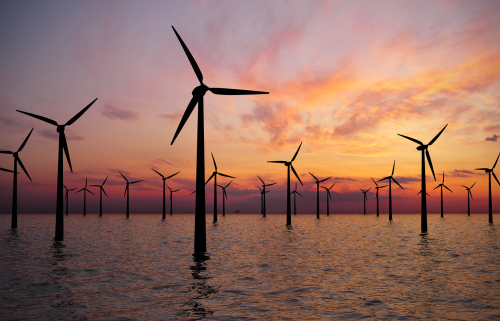A time for extraordinary leadership
A new energy era is within reach, with the pandemic having shown us how we are able to act decisively when facing a common purpose – in this case, a once-in-a-generation opportunity to deliver a transformative energy agenda that benefits all
The COVID-19 pandemic is a crisis of unprecedented proportions. It has crippled our health systems and ravaged our economies. And it is far from over. The question is to what degree our response to this tragedy may prompt a turning point for the future of sustainable growth, inclusivity and resilience.
In times of crisis we need leadership. Bold, clear, far-sighted leadership that bridges the priorities of today with the needs of tomorrow. Leadership that paves the way for others to follow and serves the common good. The G20 members hold the keys to much more than just their own future. As such they can take the wheel, steering us towards a sustainable future. If ever there was a time for extraordinary leadership, it is now.
We cannot afford to squander this moment for systemic change. Our energy system and the economy it supports must be rethought and rebuilt in alignment with a path to prosperity. It should become a roadmap to job creation, inclusiveness, equity, improved health and energy security, and one that avoids the dangerous impacts of climate change.
The nature of this crisis calls for a major state role, putting policymakers at the forefront of the solution. This involves defining the strategies and initiating direct interventions for the way out, while addressing the challenges that lie ahead. At the G20 energy ministers’ meeting earlier this year, I was clear about the need to embed the energy transition at the core of stimulus and recovery measures to ensure we emerge from this crisis cleaner, more resilient and more inclusive than we were before.
Affordable transitions
Countries are responding. Energy transitions have become increasingly affordable because of forward-looking policy frameworks, ongoing innovations and falling technology costs for renewables. As a result, many of the world’s leading economies are ramping up decarbonisation ambition built on a transformed energy system. The European Union, China, Japan and Korea have all announced net-zero carbon ambitions. But this is only a start.
This momentum can be harnessed to encourage similar levels of ambition from other major economies, and the rest of the world. The gains of doing so far outweigh the costs. Our Global Renewables Outlook released earlier this year shows that an energy system that is two-thirds renewable by 2050 is possible.
It is also a path that relies on available technologies that must be scaled up to stay on the 1.5°C trajectory. A renewables-based energy transition would boost cumulative global gross domestic product gains close to $100 trillion while significantly increasing the total number of energy jobs from around 60 million today to well over 100 million in 2050.
Our COVID-19 response report says that by investing $2 trillion in the energy transformation each year between 2021
and 2023, the global economy could add
5.5 million new sustainable jobs. At present, around $10 trillion of investment in unsustainable energy is still planned over the next decade – an attempt to bail out the old system. These are highly vulnerable plans, likely to result in significant levels of stranded assets, eroded financial stability and fiscal uncertainty in the coming years. What is required is a redirection of capital and a change of mindset.
New energy strategies
A sustained shift in local economies requires not only new energy strategies but also industrial policies to harness diverse segments of the value chain and targeted education and training programmes to build tomorrow’s workforce.
Government policies and investment choices can create the self-perpetuating momentum to enact systemic change and deliver the energy transformation. Importantly, this is investment in our collective future and a key enabler of economic growth, social resilience and human welfare. The burden would not fall on public finance alone, particularly as technologies develop and costs fall further. Public finance can leverage private investments by a factor of three or four and should be used strategically to nudge investment decisions and financing in the right direction.
The agenda proposed is achievable. It is a once-in-a-generation opportunity for the G20 to deliver a transformative agenda that works for all. The pandemic has shown us how quickly everything we know can change. But it has also shown that collectively and with a common purpose, we are able to act decisively. Let us ensure that our actions deliver the future we all aspire to.












